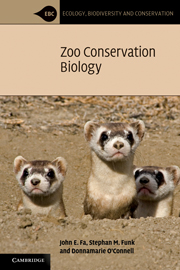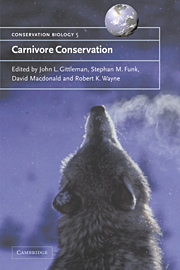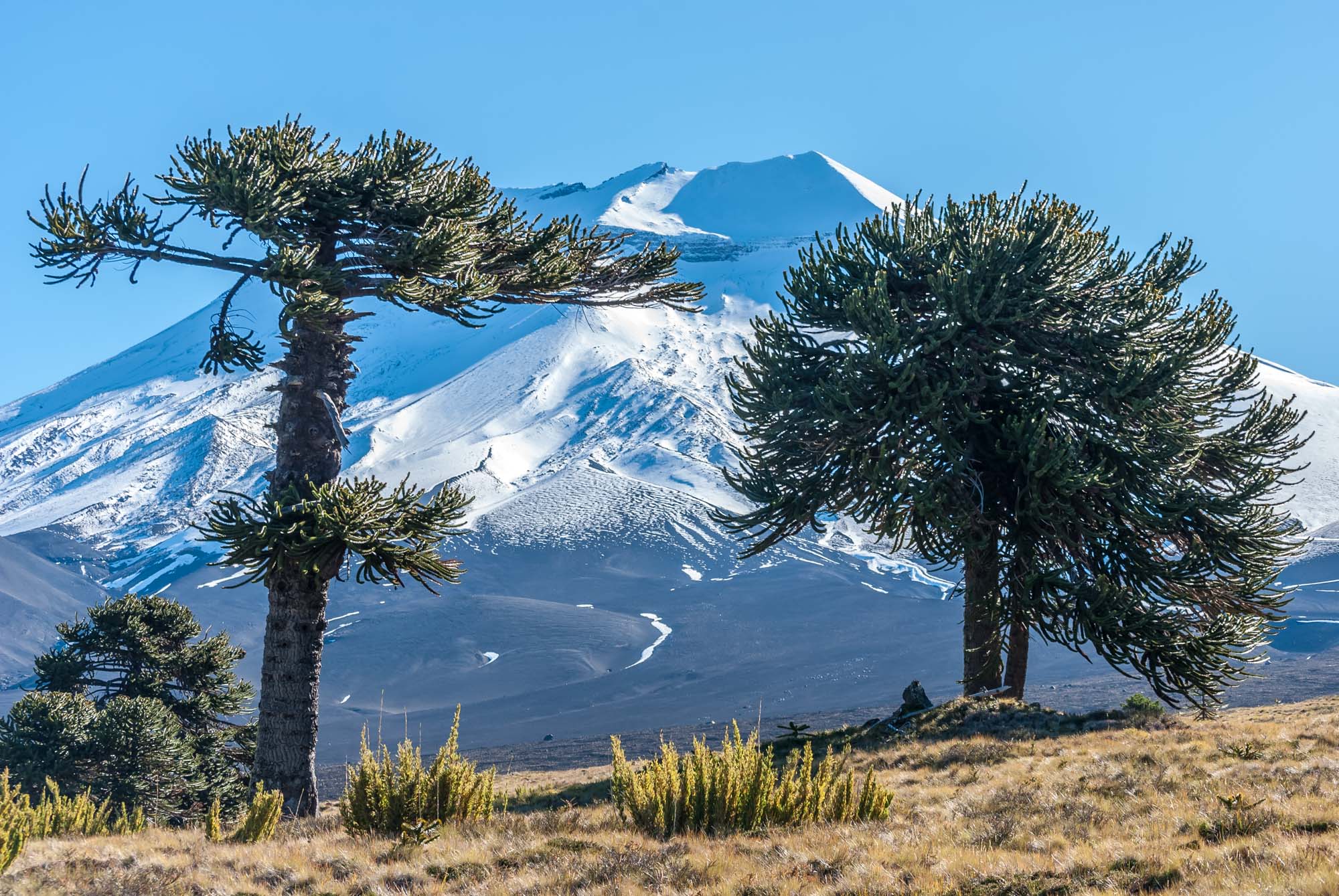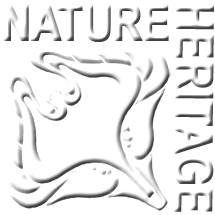

Zoo Conservation Biology
John E. Fa, Durrell Wildlife Conservation Trust
Stephan M. Funk, Nature Heritage
Donnamarie O'Connell, RSPCA International
DATE PUBLISHED: December 2011
348 pages, 61 b/w illus. 16 tables
Available at Cambridge University Press. You might be able to access the contents via institutional login.
Adobe eBook @ $ 47.00 USD
Hardback @ $ 135.99 USD
Paperback @ $ 59.99 USD
Note: on Cambridge University Press' webpage an (P) after the price signifies "print on demand".
In the face of ever-declining biodiversity, zoos have a major role to play in species conservation. Written by professionals involved in in-situ conservation and restoration projects internationally, this is a critical assessment of the contribution of zoos to species conservation through evidence amassed from a wide range of sources. The first part outlines the biodiversity context within which zoos should operate, introducing the origins and global spread of zoos and exploring animal collection composition. The second part focuses on the basic elements of keeping viable captive animal populations. It considers the consequences of captivity on animals, the genetics of captive populations and the performance of zoos in captive breeding. The final part examines ways in which zoos can make a significant difference to conservation now and in the future. Bridging the gap between pure science and applied conservation, this is an ideal resource for both conservation biologists and zoo professionals.
- Provides a complete and integrative overview of zoos and captive breeding of endangered species for conservation
- Bridges the gap between pure science and applied conservation, making it an accessible resource for both scientists and conservation managers on the ground
- Proposes a new working template through which zoos can contribute more to the conservation of highly threatened species of animals worldwide
Reviews & endorsements
Markus Gusset, WAZA News: "Zoo Conservation Biology is essential reading for anyone who wants to understand the role - and potential - of zoos in conservation. A critical, wide-ranging synthesis, this book sets out the potential of zoos as a component in conservation's toolkit, and addresses the challenges, biological and educational, for modern, integrated conservation. This book is the definite text on the role of progressive zoo in the modern world. It covers a broad range of topics from field conservation, to captive breeding, returning animals to the wild, and public education, and holds out the ultimate challenge of turning zoos into conservation centres. If you are interested in the role of zoos today, this book is a required reading."
David Macdonald, Director, Wildlife Conservation Research Unit, University of Oxford: "Zoo Conservation Biology is essential reading for anyone who wants to understand the role – and potential – of zoos in conservation. A critical, wide-ranging synthesis, this book sets out the potential of zoos as a component in conservation’s toolkit, and addresses the challenges, biological and educational, for modern, integrated conservation."
Simon Stuart, Chair, IUCN Species Survival Commission: "... the definitive text on the role of the progressive zoo in the modern world. It covers a broad range of topics from field conservation, to captive breeding, returning animals to the wild, and public education, and holds out the ultimate challenge of turning zoos into conservation centres. If you are interested in the role of zoos today, this book is required reading."
Contents
Foreword by Georgina Mace
1 - Biodiversity and zoo conservation biology
2 - Protecting species and habitats
3 - Zoos in focus – public exhibition or conservation
4 - Keeping animals in captivity
5 - Viable captive populations – the numbers game
7 - Returning animals to the wild
9 - Turning zoos into conservation centres
Whilst Stephan was working at the Institute of Zoology of the Zoological Society of London (ZSL), he co-edited this book, which is still available.

Carnivore Conservation
John L. Gittleman (editor), University of Virginia
Stephan M. Funk (editor), Zoological Society of London
David W. MacDonald (editor), University of Oxford
Robert K. Wayne (editor), University of California, Los Angeles
DATE PUBLISHED: June 2001
692 pages, 62 b/w illus. 36 tables
Series: Conservation Biology
Contributors
John L. Gittleman, Stephan M. Funk, David W. MacDonald, Robert K. Wayne, Andy Purvis, Georgina M. Mace, Scott Creel, Göran Spong, Nancy Creel, Rosie Woodroffe, Michael D. Thom, Luigi Boitani, David M. Brown, Todd K. Fuller, Paul Sievert, Marc Bekoff, Warren E. Johnson, Eduardo Eizirik, Gina M. Lento, Tim W. Clark, David Mattson, Richard P. Reading, Brian J. Miller, Urs Breitenmoser, Christine Breitenmoser-Würsten, Ludwig N. Carbyn, Claudio Sillero-Zubiri, Karen Laurenson, Pierre Taberlet, Gordon Luikart, Eli Geffen, Melody Roelke-Parker, Stephen J. O'Brien, David E. Wildt, JoGayle Howard, Janine Brown, Eric M. Gese, Melvin Sunquist, Fiona Sunquist, Laurence G. Frank, Christine V. Fiorello, Matthew E. Gompper, Sarah Cleaveland, M. G. L. Mills, Stephanie Freitag, A. S. van Jaarsveld, Peter Waser, Curtis Strobeck, David Paetkau, Joshua R. Ginsberg
Because carnivores are at the top of the food chain, it is often argued that protecting them will afford adequate protection to other taxa as well. In the past ten years, theoretical and empirical studies on carnivores have developed very quickly. This volume reviews and summarizes the current state of the field, describes limitations and opportunities for carnivore conservation, and offers a conceptual framework for future research and applied management. It will be of interest to students and researchers of conservation biology, mammalogy, animal behavior, ecology, and evolution.
- Critical review and up-to-date summary of both theoretical and empirical studies of carnivore conservation
- Synthesizes material from a wide variety of fields - genetics, animal behaviour, ecology, evolution etc to give well-rounded picture of our current understanding of carnivore conservation
- Written by worldwide leading experts on carnivores of all types from tigers to badgers, wolves to ferrets
Reviews & endorsements
Book Marks: ...editors Gittleman et al. have done a fine job...it will be particularly useful to students and teachers as well as field biologists...Editor David Macdonald, an award-winning writer, elegantly concludes the volume with a discussion of the broad social, moral, and economic questions that frame our options for carnivore conservation in the future."

